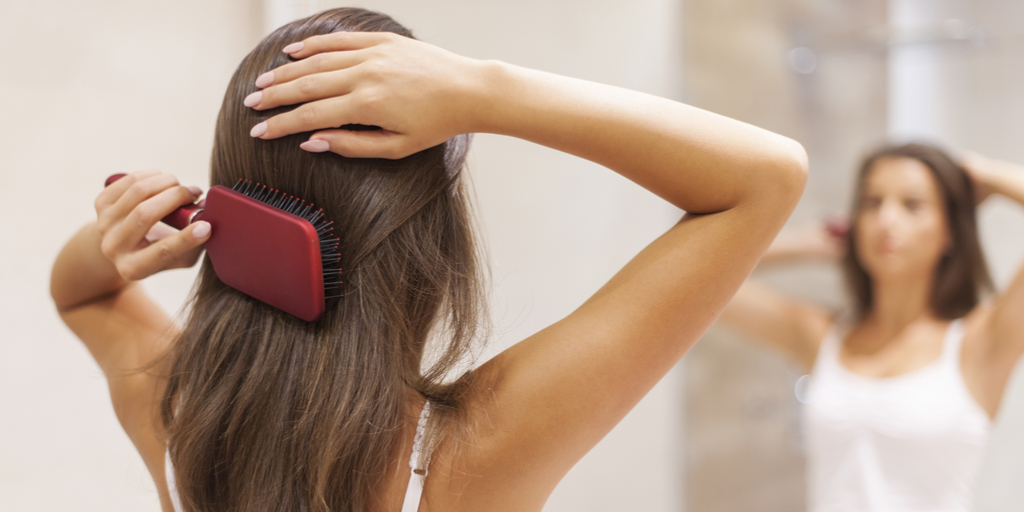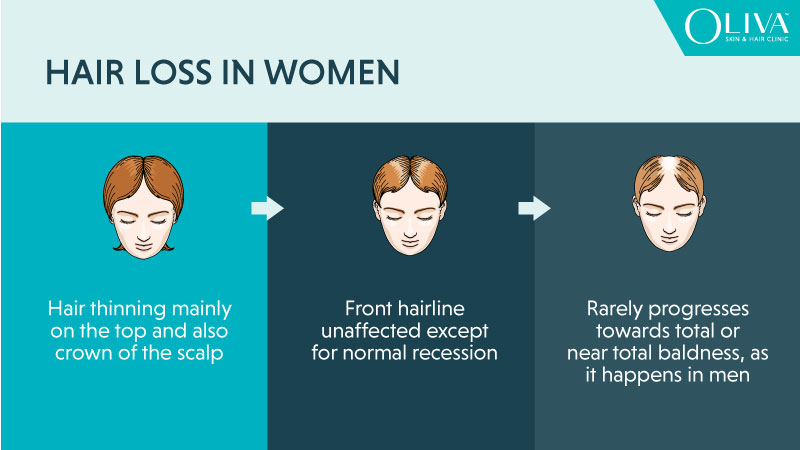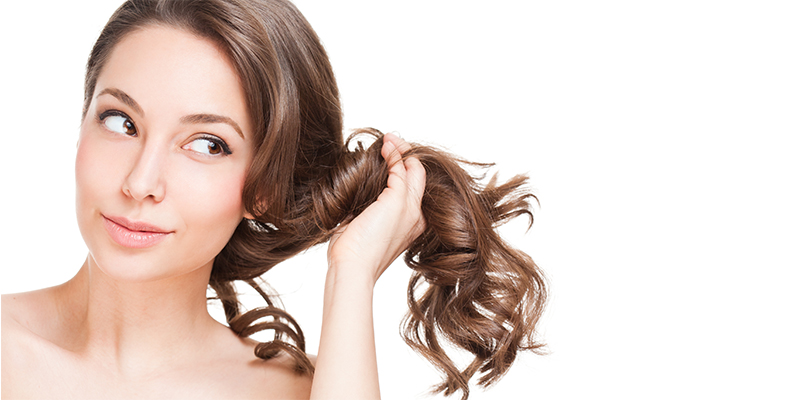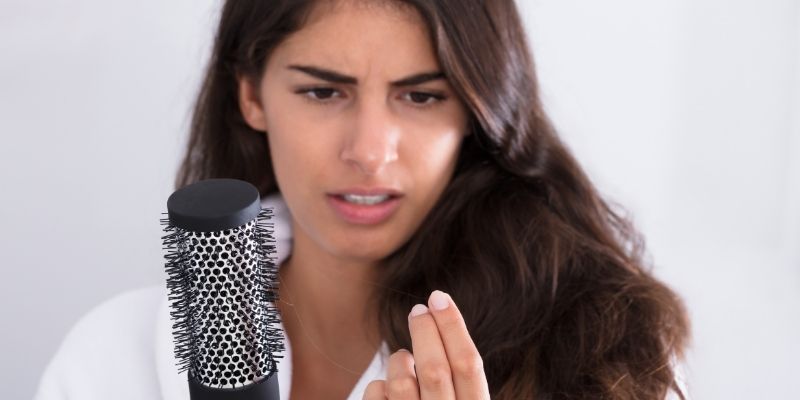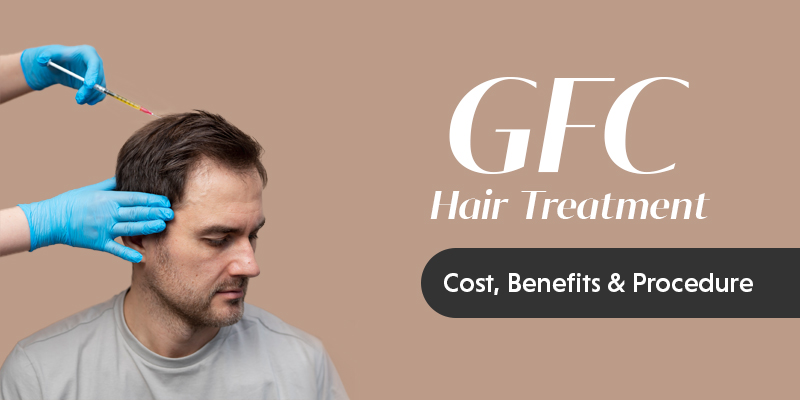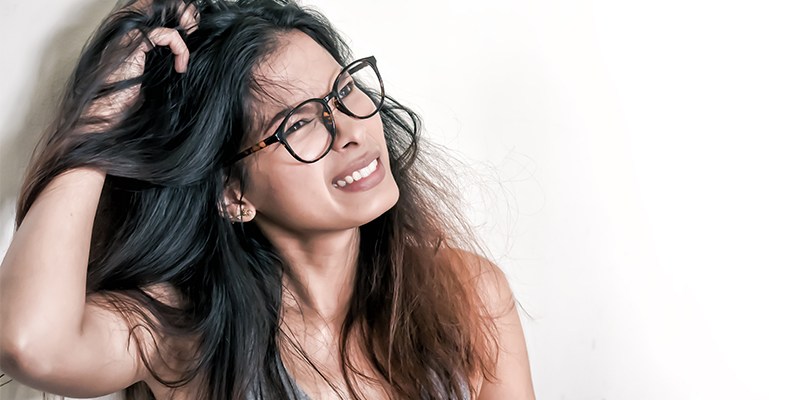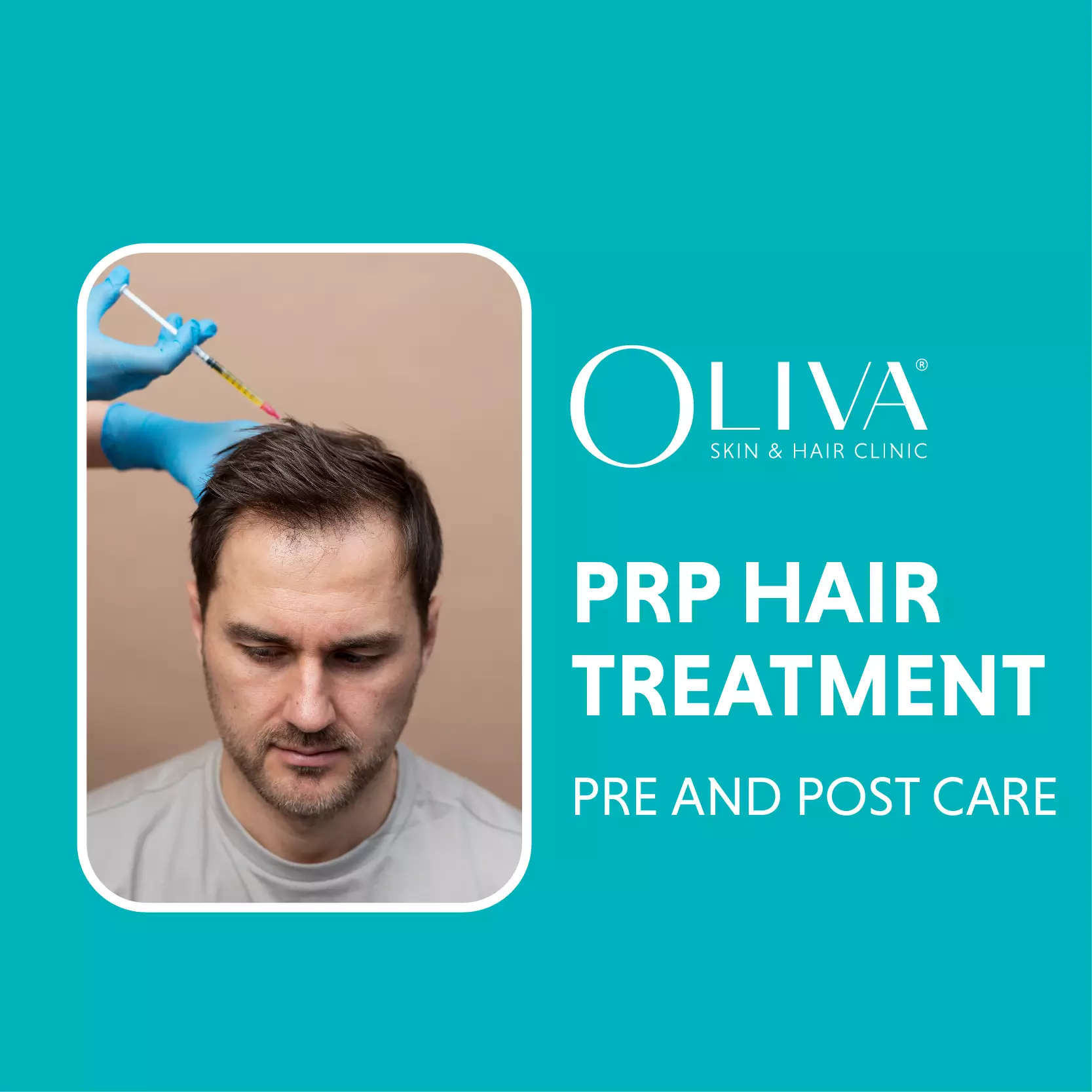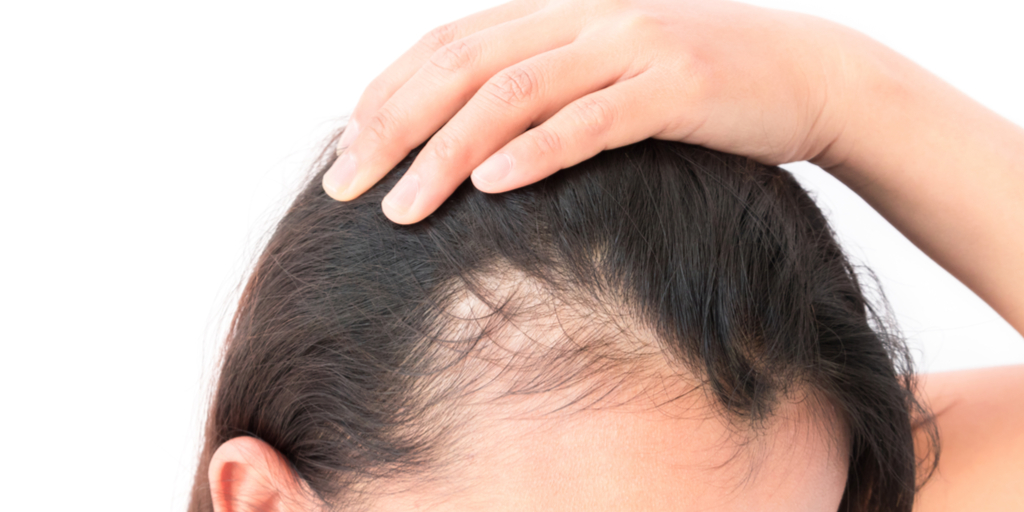How To Reduce Hair Loss After Delivery – Tips And Treatments
The joy of becoming a mother is unmatched! All the pain and problems that you endure during your pregnancy phase fades away as you cradle your child in your arms. As you settle down in a routine which involves majorly taking care of your child, a lot of women also focus on the fact that they need to lose the pregnancy fat. But many of us don’t realize that the excess fat is not the only concern after you give birth. Postpartum hair loss is a serious condition faced by majority of the women. This post is a mini guide on what is postpartum hair loss, what are its symptoms, how to prevent hair loss after pregnancy, what are the postpartum hair loss treatments available, etc.
What Is Postpartum Hair Loss?
Pregnancy is a very important phase for any women, as the joy of carrying your child brings immense pride, pleasure, excitement and fun. While the body prepares itself for the major change, there are biological and emotional changes that affect your physical and mental health too. With delivery your body begins its journey back to pre-pregnancy state. And the hormonal rushes bring in some worrisome changes like postpartum hair fall (a kind of telogen effluvium) which may sound temporary, but affects a new mother immensely. The hair fall begins with child birth and mostly stays until a year mostly. It is very important to understand this postpartum hair loss, its causes, treatments and some tips on how to reduce this hair fall post-delivery?
Is Hair Loss Normal After Delivery?
Yes, postpartum hair loss is very common and majority of women face this soon after delivery. Though it may be a temporary condition but there are chances it leaves behind visible signs of hair loss. And for women wondering if they will turn bald due to this hair fall post-pregnancy, do not panic. You just need to pay a little attention and keep up with your diet and fitness routine; things will fall back to normal within a year.
Also Read: Hair Loss During Pregnancy – Treatment & Prevention
Do I Be Worried About Hair Loss After Pregnancy?
No, you should not be worried until there are severe signs of persistent hair loss even beyond the first year post delivery. Hair loss after pregnancy is normal and it is not like the actual hair fall, rather dermatologists call it as a phase of hair shedding which is triggered by a fall in oestrogen levels. And it is not a worrisome condition, as most women recover within a years’ time. But if at any point you feel you are experiencing an unusual hair loss, check with your gynaecologist immediately and take this ahead to a trichologist for treatment
Signs Of Postpartum Hair Loss
It is common to lose around 50-100 hair in a day due to the shedding phase of hair cycle. But after delivery you may see a lot more hair falling out each day. Some signs of postpartum hair fall include –
- Chunk of hair coming out every time you comb your hair.
- Lots of hair seen on your pillow when you wake up in the morning.
- Clumps of hair clogging the drain each time you wash your hair.
- If you run your fingers from your hair, you would see a lot of hair coming out.
- Even a mild amount of pressure can cause lot of hair to fall out
Also Read: Hair Loss Treatment
What Are The Causes Of Hair Loss After Pregnancy?
The biggest cause for postpartum hair loss is hormonal surges but there are other factors adding up to it too. While you may not be able to undo the effects of hormonal changes, but you can check the other reasons and take necessary precautions/ treatments in time –
- Drop in the levels of Oestrogen hormone – There is a rapid increase in the level of oestrogen during pregnancy especially in the first trimester. But soon after delivery the level of oestrogen drops down, and this affects the growth cycle of the hair which is cut short and hair fall increases. A lot of follicles enter the resting phase quickly and thus increased hair fall is seen
- Stress – There is immense emotional and physical stress involved soon after child birth. Even the bouts of postpartum lows and depression cause a lot of stress, thus triggering hair loss
- Postpartum Thyroiditis – Though it is uncommon, but this condition spikes the thyroid gland with inflammation in the first year post delivery. The first phase is hyperthyroidism and then comes hypothyroidism, that bring a lot of hair fall along
- Loss of Nutrients After Delivery – Since your body undergoes immense changes and blood loss, there is a definite loss of nutrients as well. This can also be a reason which aggravates hair loss post delivery
- Anemia – Some women are iron deficient and with blood loss during delivery their anemia spikes. This causes a lot of hair to fall even more than the usual hair fall post delivery
- Lack of Sufficient Sleep and Rest – Being a new mother can make you sleepless and restless. This affects your body and mind too and results in aggravating the hair loss
- Eating Habits – Eating healthy and a balanced diet is extremely important as you are not just bringing your body in normal state but also nursing your child too. If you miss on any important nutrient it may severe your hair loss condition.
Also Read: What Are The Causes Of Hair Loss In Men & Women
What Is The Treatment For Hair Loss After Pregnancy?
Wondering about after delivery hair fall treatments, well! You have a respite as the below compilation will save you with some advanced treatment choices. For normal postpartum hair fall, your doctor will not prescribe any of these, but for severe cases, you would need the below. As there maybe underlying health issues which may lead up to severe hair loss post-delivery. The doctor would not only determine the root cause to stop hair loss, but also determine the most suitable treatment to restore the lost hair line –
- Platelet Rich Plasma (PRP) – It is a therapeutic treatment that helps in regrowth and restoration of receded hairline. The patient’s own blood is extracted and put to centrifuge, that separates the plasma from blood. Then this plasma is activated and growth factors are infused. This concoction is then injected back into the scalp with areas of scanty hair where protein rich plasma stimulates the dormant hair follicles and brings about newer hair growth.
Dermatologist consider PRP Hair Therapy extremely beneficial for female pattern baldness. - Medications – Certain USFDA approved topical drugs like minoxidil (foam or solution form) can be prescribed in combination with PRP or alone, to bring about renewed hair growth. This drug is proved to treat hair thinning and hair-fall in women effectively.
- Biotin Supplements – They are quite effective in dealing with postpartum hair loss. One way to use Biotin is to use shampoos and conditioners which are fortified with biotin, only after consulting your dermatologist.
- Vitamins Supplements – Ensure that you do not miss out on taking your postpartum vitamin supplements. Ensure that you include vitamin C, vitamin E, zinc and B-vitamins daily in your diet. You need to consult your doctor who can guide you on the best dosage of these vitamins.
- If you prefer treatment methods that do not involve side effects or any drugs, then you can also check for low-level laser devices. But you need to check with your gynaecologist prior to taking up this procedure.
# What is the best hair loss solution available in India? Watch this video to know the comparision:
How To Reduce Hair Loss Post Delivery?
You may not be able to control the hair fall after delivery but prevent it from getting severe in some cases. Since majority of hair fall post-delivery is due to hormonal surges there is nothing much you can do. Follow some tips to reduce the effect of hair-fall soon after delivery –
- Use Hormonal Birth Control Pills – Birth control would be an important decision soon after delivery and the better option would be a hormonal contraceptive pill which also helps in controlling hair loss. As it brings the hormonal balance back in the body.
- Focus on Your Diet – Take a balanced diet in terms of vitamins and minerals. Your little one might take up majority of your time, but you still need to make sure that you eat a good and healthy diet.
- Get Good Sleep – You need ample amount of rest after delivery and the best way to do is to try while your baby is asleep.
- Follow a Good Hair Care Routine – Which means avoid excessive brushing of hair. Wash your hair regularly and maintain hygiene, also cover your hair when heading out in the sun and prevent over sweating around your hair.
- Choose the Right Hair Products – They should be according to your hair type so that you do not cause any further damage by using wrong products. Do not use harsh chemical based hair products that can further damage your hair.
- Don’t tie your Hair too tightly – Do not use tight hair accessories such as rubber ponytail holders or hair clips; instead you can use bandanas, scrunches or barrettes to keep your hair in place. Also avoid too tight pigtails, ponytails, etc. that put immense pressure and cause the hair to fall off easily.
- Tourniquet – In some cases wearing a tourniquet also helps contain the hair loss but you need to ensure that you wear it regularly and use it as per the instructions provided.
FAQs
- How long does Postpartum Hair Loss last?
Postpartum hair loss can last anywhere between 9 months to a year. In many cases, you will notice this problem declining by the time your baby completes a year. - Does Breastfeeding Cause Postpartum Hair Loss?
No, breastfeeding does not cause postpartum hair loss. It is simply a myth.




